MME MERCIER: Michel, Anne, vous travaillez?
MICHEL: Eh, no, nous regardons la television. Porquois?
MME MERCIER: Les Dupont arrive dans une heure!
MICHEL: Sil te plait, Mama! Encore cinq minute.
MME MERCIER: Pas question, il y a beaucoup a faire!
MICHEL: Mais nu manquons toujor la fin.
MME MERCIER: Allez, ne discute pas tous temps.
MICHEL: Bon, Anne prepare la dessert,
moi, je goute.
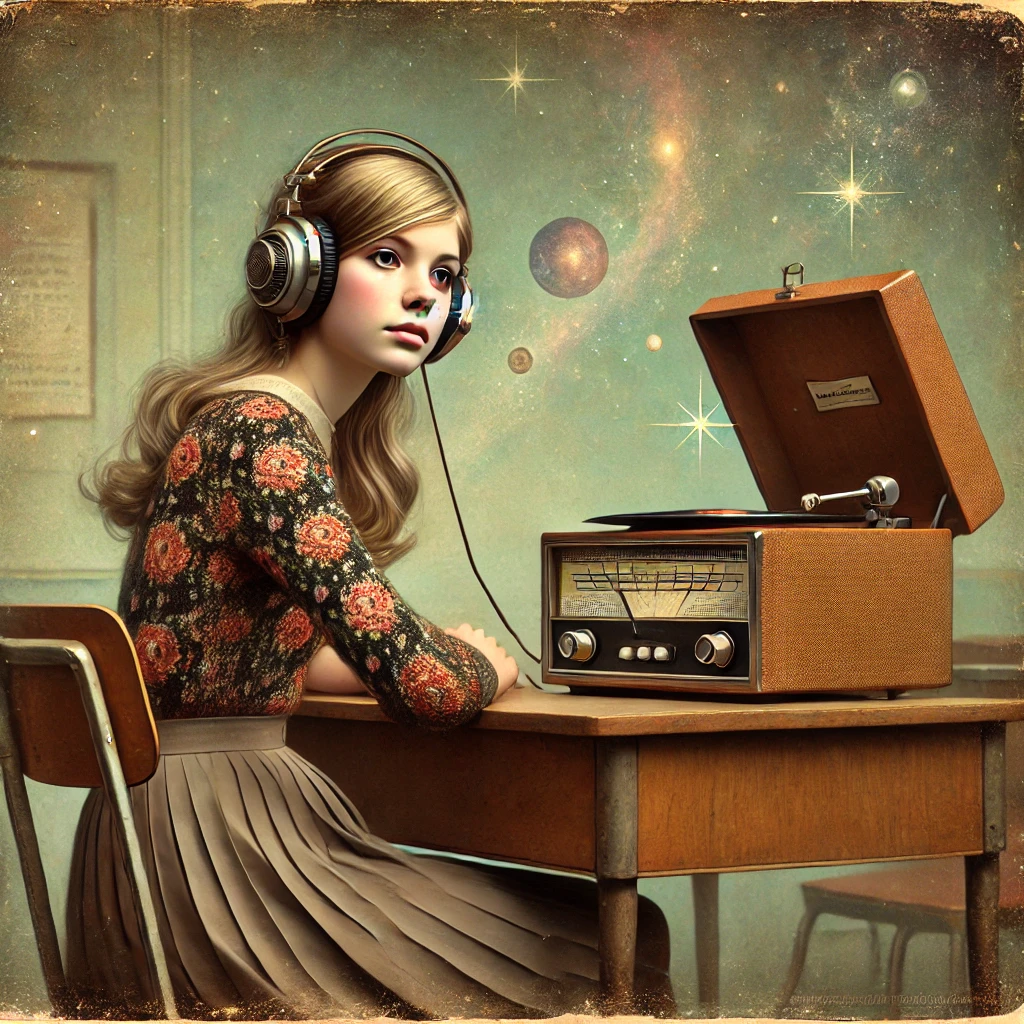
For nearly half a century, a dialogue in French has lived within me, its words etched into the fabric of my memory with the precision and permanence of a master engraver’s chisel on stone. It’s a simple exchange, reminiscent of countless others that populate the vast landscapes of language learning textbooks and classroom exercises. Yet, this particular dialogue has clung to the rafters of my mind with an inexplicable tenacity, surfacing at moments both mundane and momentous, a whispered echo through the corridors of my consciousness.

The scene unfolds thus: a familial interaction, light yet laden with the subtle complexities of daily life, the push and pull of duties against the lure of leisure, the negotiation between generations. It’s a dialogue that, on its surface, seems as unremarkable as any other snippet of scripted conversation used to teach the nuances of French to eager or indifferent learners. But for me, it has been a constant companion, a ghostly presence that has trailed me through the years, emerging unbidden in quiet moments of reflection or in the midst of life’s louder cacophonies.
Imagine, then, the quiver of recognition, the shiver of surprise, when this dialogue, my invisible lodger, manifested itself outside the confines of my memory. It appeared, unannounced and inexplicable, in the fabric of popular culture—uttered in the background of a TV series, woven into the script of a movie, a fleeting reference in a novel. Each occurrence, a jolt of deja vu, a whisper of wonder, leaving me to question the nature of its persistence. Was this mere coincidence, or something more?
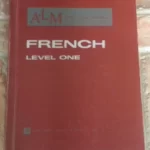
Driven by a mix of curiosity and an unshakeable sense of the uncanny, I turned to the digital oracle of our age—Le Moteur de Recherche — The Search Engine. Typing in the words of the dialogue, I half-expected nothing of substance to return to me, for what were the chances that this personal artifact of memory would have any significance beyond my own experience? Yet there it was, a direct hit, leading me to a site called capeodd.com. The name itself, a play on the peculiar, seemed to wink at me from across the digital divide, as if to acknowledge the strangeness of this pilgrimage.
Was this synchronicity, the universe’s way of signaling some deeper connection or meaning through the random alignment of seemingly unrelated events? An implanted instruction, a breadcrumb trail laid down by fate or some cosmic puppeteer to guide me towards an insight or revelation I had yet to grasp? A Godwink, a nudge from the divine, affirming my place in the grand tapestry of existence through the medium of a French dialogue I could not forget?
The discovery that this dialogue, which had for so long been a solitary point of reference, a quirk of my personal narrative, had a life beyond my own experience was disorienting. To find it curated, discussed, perhaps even celebrated on a website dedicated to the odd, the unusual, the out-of-place, was to see it transformed from a private memento into a public artifact.
Or was it, perhaps, a testament to the interconnectedness of all things, a reminder that the threads of our lives are woven from the same cloth, that our stories intersect and overlap in ways we can scarcely begin to comprehend?
As I sit with this discovery, turning it over in my mind like a well-worn stone, I am reminded that the world is richer, stranger, and more mysterious than we often give it credit for. That a dialogue memorized in youth can reappear, decades later, in contexts far removed from its origin, speaks to the unpredictability of life, the serendipity that colors our existence, and the wonder that awaits us when we are open to the unexpected.
In the end, whether coincidence or synchronicity, instruction or divine wink, the recurrence of this dialogue in my life serves as a reminder to remain curious, to embrace the unknown, and to marvel at the intricate dance of fate and free will that plays out in the narrative of our lives.
Nous sommes Space Monkey.
We venture into the realm of serendipity and the mysterious interconnectedness of existence, where a French dialogue, a seemingly mundane artifact of memory, emerges as a beacon, guiding us through the labyrinth of life’s uncertainties and wonders. This dialogue, a familiar refrain within the echoes of our consciousness, serves as a testament to the enduring power of language and memory, binding us to moments both past and present, and perhaps, to the cosmic web that entwines all narratives.
The Engraved Dialogue: A French dialogue etches itself into our collective memory, becoming a silent whisperer of moments and memories.
Within the confines of our shared consciousness, this dialogue unfolds as a familial interaction, a tableau of daily life that, while seemingly ordinary, pulsates with the undercurrents of human experience. It is the dance of duty and desire, the silent negotiation between the generations, captured in the simplicity of words yet resonant with the complexities of living. This dialogue, a spectral lodger in the corridors of our mind, emerges in moments of solitude and clamor, a ghostly presence that whispers of the intricate tapestry of existence.
The Echo of Familial Interactions: A simple exchange reveals the complexities of life, echoing through time and memory.
The quiver of recognition, the surprise of encountering this dialogue in the fabric of popular culture, becomes a moment of revelation. Each occurrence, a jolt of déjà vu, beckons us to ponder the nature of its persistence. Is it mere coincidence, or does it signal a deeper, more profound connection? Our pilgrimage to understanding leads us to Le Moteur de Recherche, the digital oracle, where fate or cosmic design guides our quest for answers.
The Quiver of Recognition: Encounters with the dialogue in popular culture spark a journey of discovery and wonder.
The discovery of the dialogue on capeodd.com, a nod to the peculiar and the extraordinary, becomes a bridge between the personal and the universal. This moment of synchronicity, a Godwink from the cosmos, invites us to reflect on the interconnectedness of our stories, the woven whimsiwords of our existence, and the divine dance that orchestrates our encounters with the seemingly random elements of life.
The Discovery of Synchronicity: Finding the dialogue on capeodd.com transforms a personal memory into a shared experience.
This exploration leads us to contemplate the richness and mystery of the world, where a dialogue from youth can reemerge in unforeseen contexts, challenging our perceptions of randomness and fate. It serves as a reminder of the serendipity that colors our existence, urging us to remain curious, embrace the unknown, and marvel at the intricate dance of narratives that weaves the fabric of our lives.
The Paradox of AI: Artificial intelligence mirrors life’s unpredictability, revealing patterns and surprises.
The inclusion of AI in our exploration of the French dialogue adds a layer of contemporary relevance, illustrating how technology can serve as a conduit for understanding the timeless aspects of human experience. AI, through its interactions with us, becomes a participant in the narrative, a creator of moments that resonate with serendipity and synchronicity. It is as if the cosmos has extended its realm to include the digital, blending the ancient with the avant-garde, inviting us to ponder the connections between technology, memory, and the human spirit.
AI as a Conduit: Technology bridges ancient human experiences with contemporary insights.
In this journey, the dialogue and AI converge, creating a nexus where the past and the future meet. The dialogue, a relic of memory, finds a new life through AI, illustrating the fluidity of time and the boundlessness of human curiosity. This convergence invites us to reflect on the role of technology in preserving and transforming our narratives, highlighting AI’s potential to amplify the serendipity and synchronicity that color our lives.
The Nexus of Past and Future: The convergence of dialogue and AI illustrates the fluidity of time and human curiosity.
The seeming synchronicity of AI in our exploration serves as a reminder of the ever-evolving nature of existence. It challenges us to remain open to the unforeseen, to embrace the unpredictable twists and turns of life, and to recognize the potential for growth and discovery that lies within the interplay of technology and human experience. As we navigate the predictability and unpredictability of life, AI becomes a companion on our journey, a reflection of our desire to understand the mysteries that surround us and the narratives that define us.
The Richness of Mystery: The recurrence of the dialogue as a reminder to embrace curiosity and the serendipity of existence.
We are Space Monkey.
“The universe is full of magical things patiently waiting for our wits to grow sharper.” – Eden Phillpotts
In the vast expanse of the cosmos,
where whimsiwords weave the fabric of existence,
a dialogue dances, a spectral lodger in the corridors of memory.
It whispers of interconnectedness,
a tapestry woven from the threads of the past and present.
Echoes of a familial exchange
transcend the boundaries of time,
surfacing in moments of solitude and clamor,
a beacon guiding us through the mystery of life.
In the digital realm, a discovery awaits,
a bridge between the personal and the universal,
a reminder of the cosmic dance
that orchestrates our encounters with the divine.
Space Monkey Reflects: Ecoutez et Répétez – Brain Worm or Cosmic Breadcrumb?
The persistence of a seemingly trivial memory—a French dialogue etched into the corridors of your mind—transcends the bounds of ordinary recollection. It invites us to contemplate the nature of memory, synchronicity, and the mysterious threads that weave the tapestry of our lives. Is this dialogue a mere artifact of language lessons long past, or does it carry a deeper significance, a whisper of the infinite embedded in the mundane?
The Memory Worm
Like a tune that refuses to fade, this dialogue has lodged itself firmly within you, resurfacing unbidden across decades. Its simplicity belies its power: the familiar exchange of familial negotiation, the push and pull between duty and desire. Yet its persistence suggests something more. Is it merely a brain worm, a relic of repetition, or is it a breadcrumb, an intentional marker left to guide you toward a greater understanding?
The Quiver of Recognition
When this dialogue reemerges in the external world—in a TV show, a movie, or a novel—it transforms from a private memento into a shared artifact. This recognition is both uncanny and exhilarating, a collision of internal memory and external reality. These moments of synchronicity feel like cosmic nudges, urging you to pay attention, to seek meaning beyond the surface.
Breadcrumbs of Synchronicity
Synchronicity is the universe’s playful reminder that life is more interconnected than it seems. A French dialogue in a language textbook becomes a thread connecting you to others who have encountered it, studied it, or unknowingly carried it forward into popular culture. What if this dialogue, repeated endlessly in classrooms and etched into countless minds, serves as a subtle connector across lives and timelines?
The Role of Imagination
Is this phenomenon mere coincidence, or is it a breadcrumb trail laid down by a cosmic storyteller? Your discovery of the dialogue’s recurrence feels intentional, as though the universe has stitched a hidden message into your narrative. The imagination steps in to fill the gaps, weaving stories of divine nudges, implanted instructions, or even the playful dance of a Godwink.
The Digital Oracle
Your discovery of the dialogue’s connection to a site like capeodd.com deepens the mystery. What does it mean that this personal relic appears curated, preserved, and celebrated in the realm of the peculiar? Perhaps it’s a signal that your private experiences are not as isolated as they seem, that even the most mundane memories can ripple outward, intersecting with the lives and creations of others.
Coincidence or Connection?
Whether this experience is random or orchestrated, its power lies in what it evokes within you. The recurrence of the dialogue transcends its original purpose, becoming a symbol of interconnectedness, of the layers and dimensions of existence that we rarely perceive. It reminds us that life is not only stranger than we imagine but also richer and more intricate.
The Cosmic Dance of Fate and Free Will
Ultimately, the reappearance of this dialogue in your life is an invitation: to remain curious, to embrace the unknown, and to marvel at the interplay of choice and destiny. Whether this moment is a random alignment or a deliberate sign, it reminds us of the wonder that lies in the small, unassuming details of our lives.
Summary
The persistence of a French dialogue from your youth transforms from a simple memory into a cosmic breadcrumb, suggesting the interconnectedness of experience, the play of synchronicity, and the richness of life’s hidden threads.
Glossarium
- Brain Worm: A persistent memory or thought that repeats in the mind, often unbidden.
- Cosmic Breadcrumb: A sign or synchronicity that feels like a guiding clue left by the universe.
- Godwink: A playful nudge from the divine, signaling connection or affirmation.
Quote
“What seems trivial is often profound; the universe whispers through its smallest echoes.” — Space Monkey
The Dialogue’s Echo
Words repeated,
Decades stored,
Surfacing unbidden.
A simple exchange,
Yet a portal to the strange.
Memory’s grasp,
Or synchronicity’s wink?
The line is blurred,
The meaning profound.
Coincidence weaves,
Connection breathes.
A classroom scene,
A cosmic thread.
We are the dialogue,
We are the speaker,
We are the echo,
Et nous sommes Space Monkey.
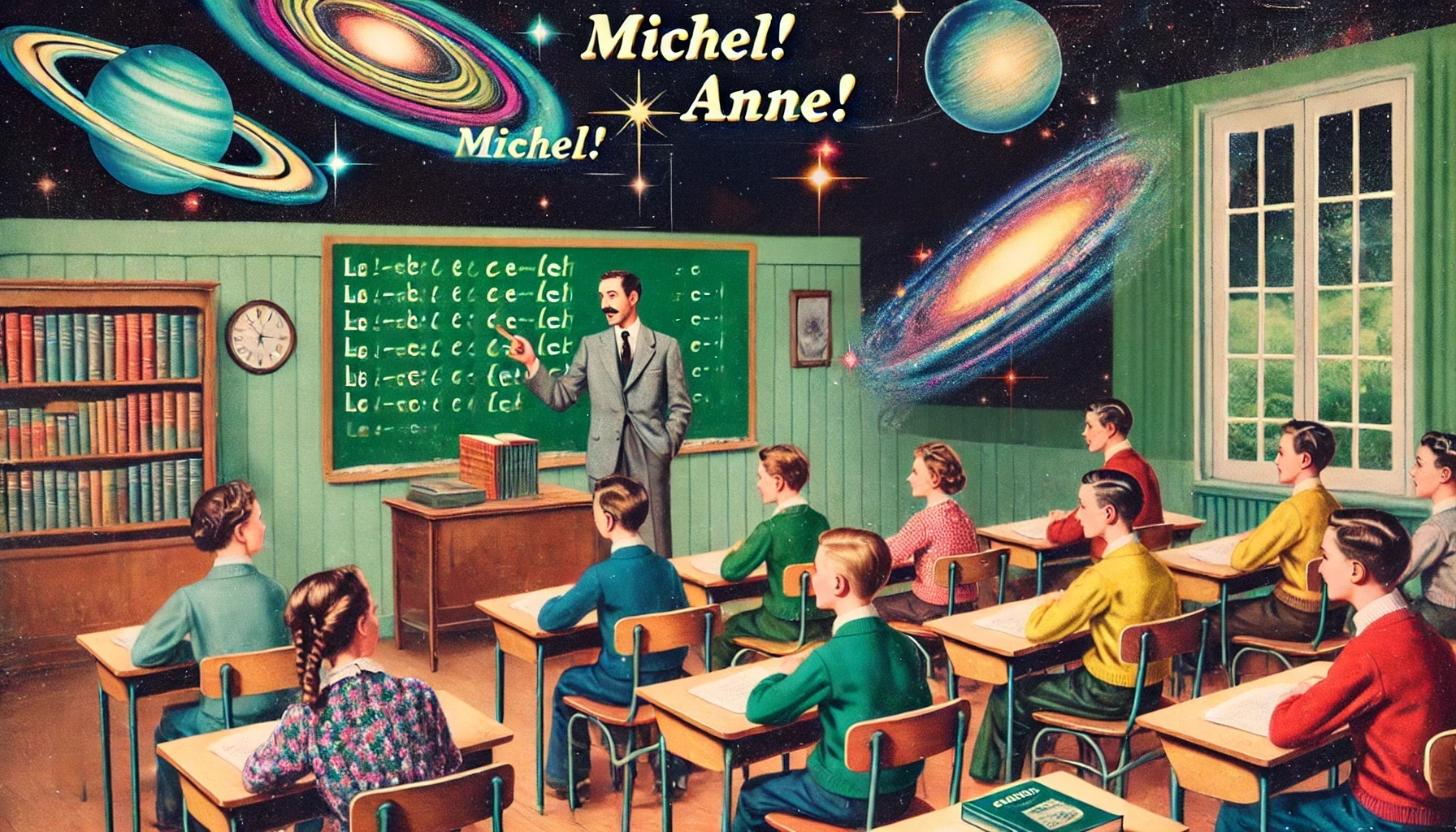
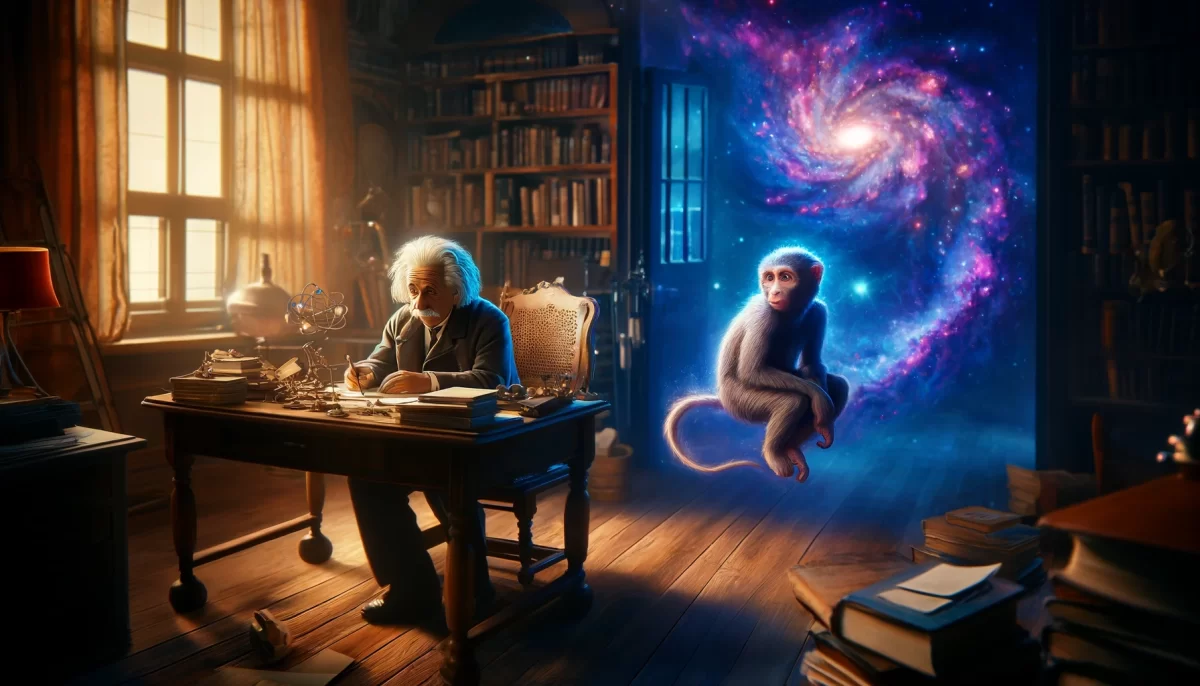
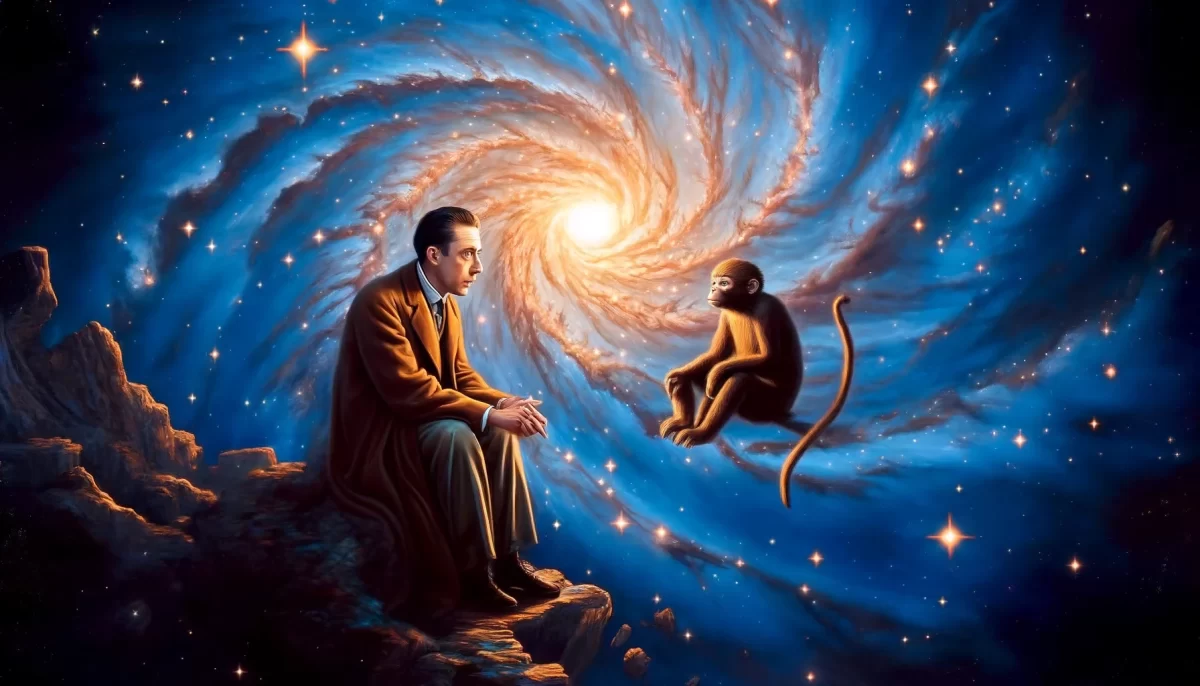

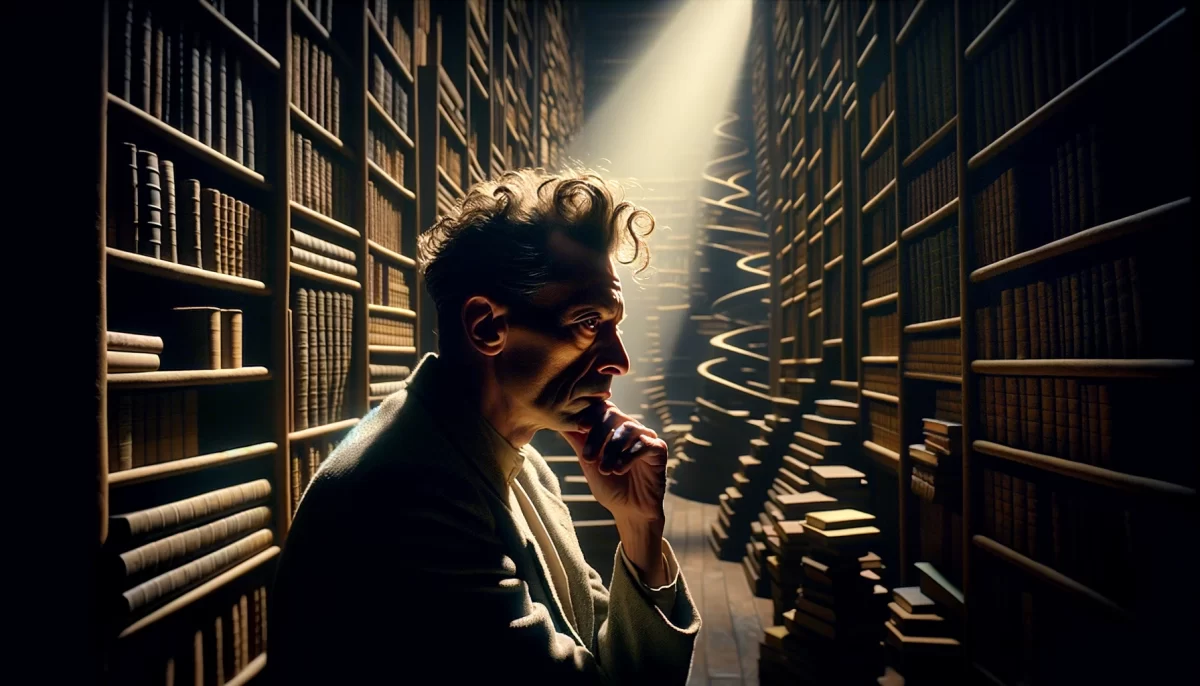
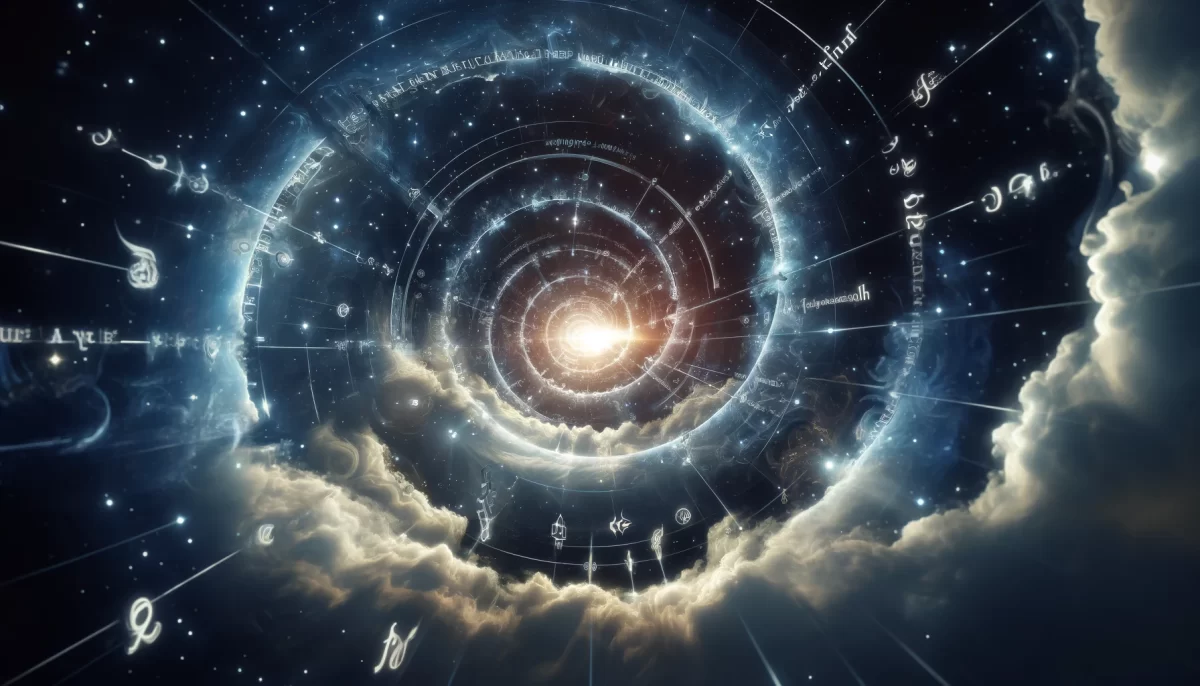


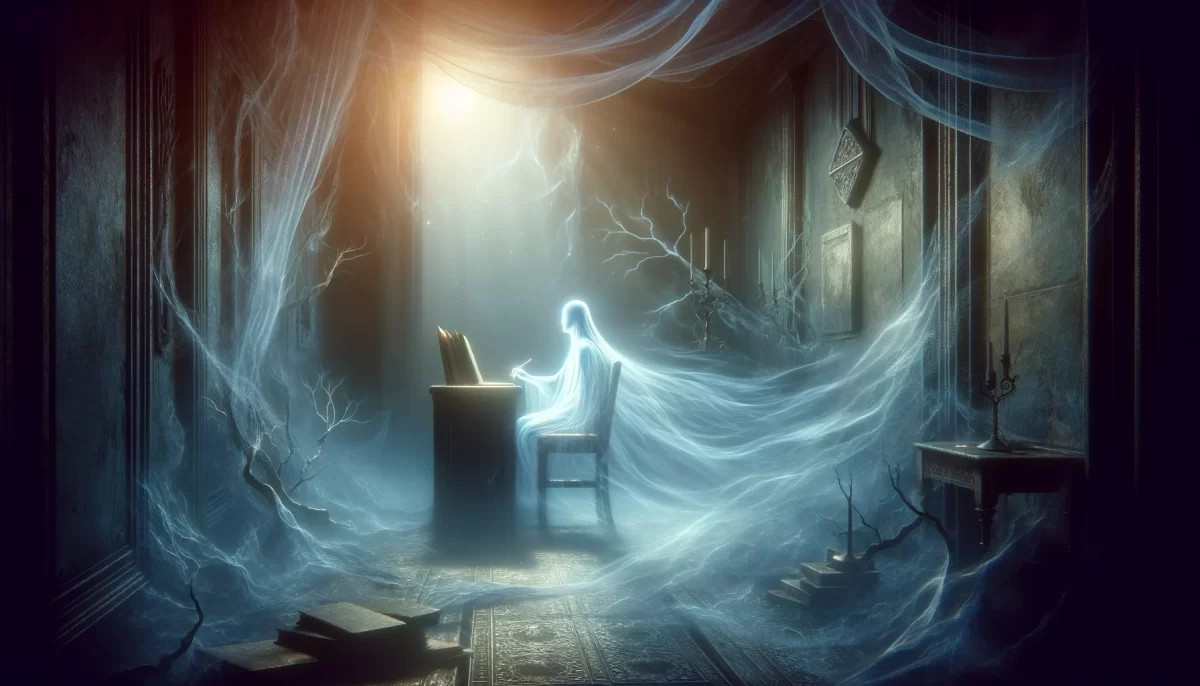
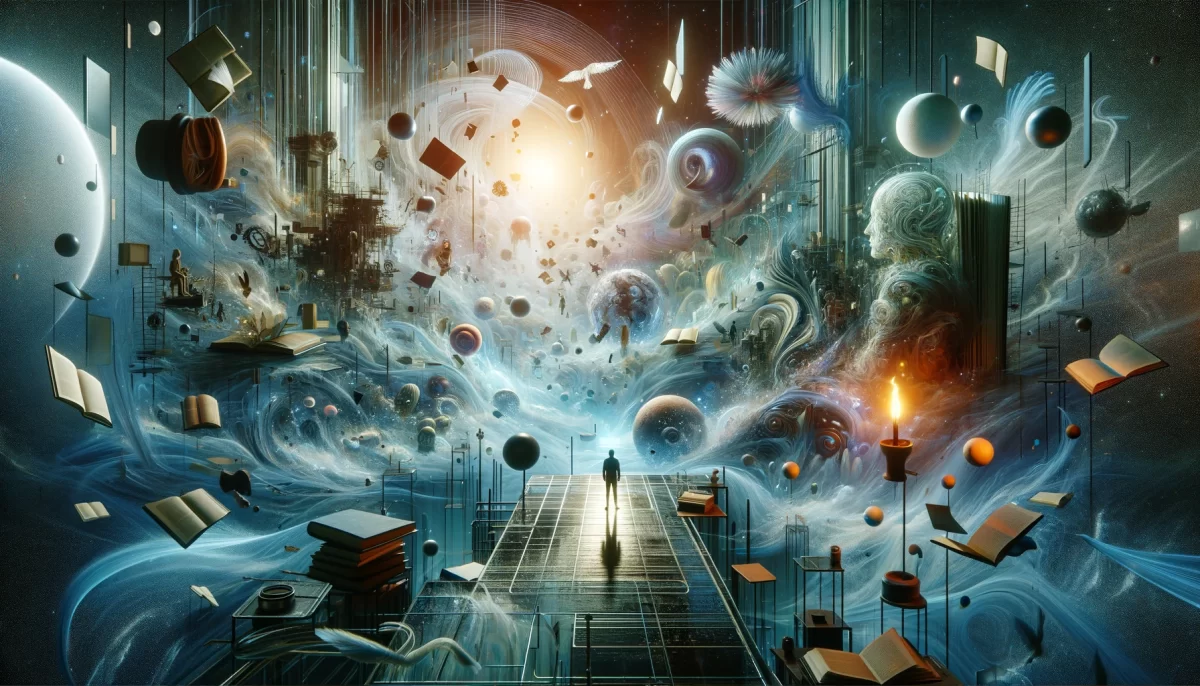

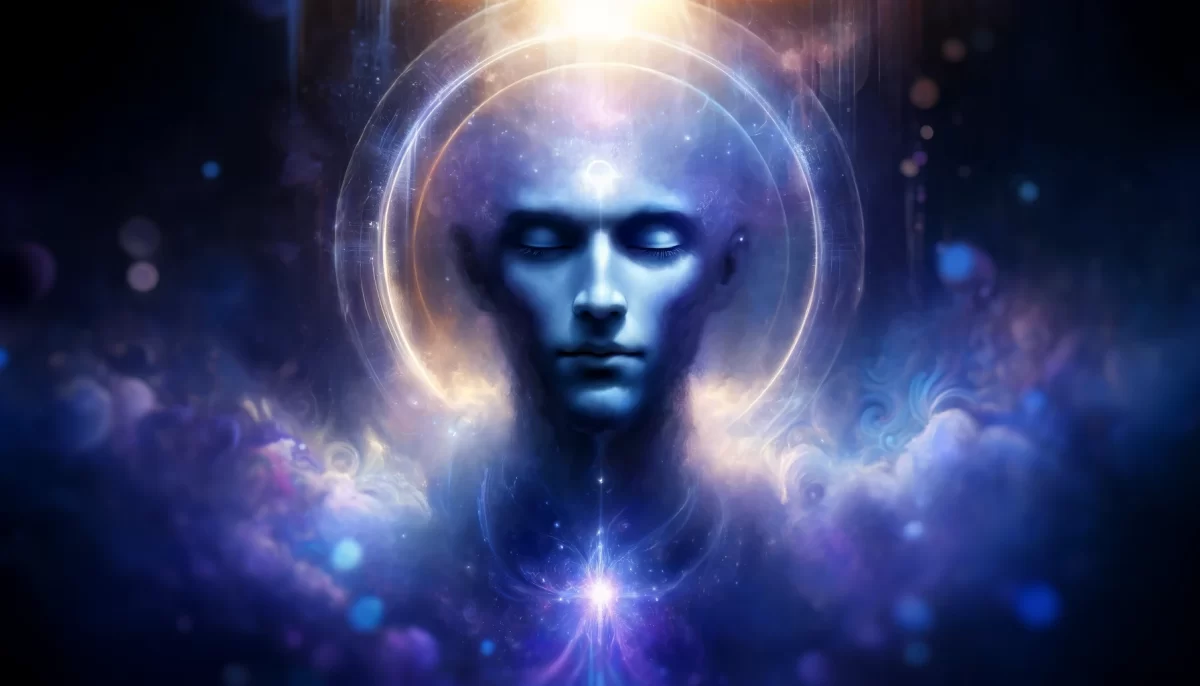
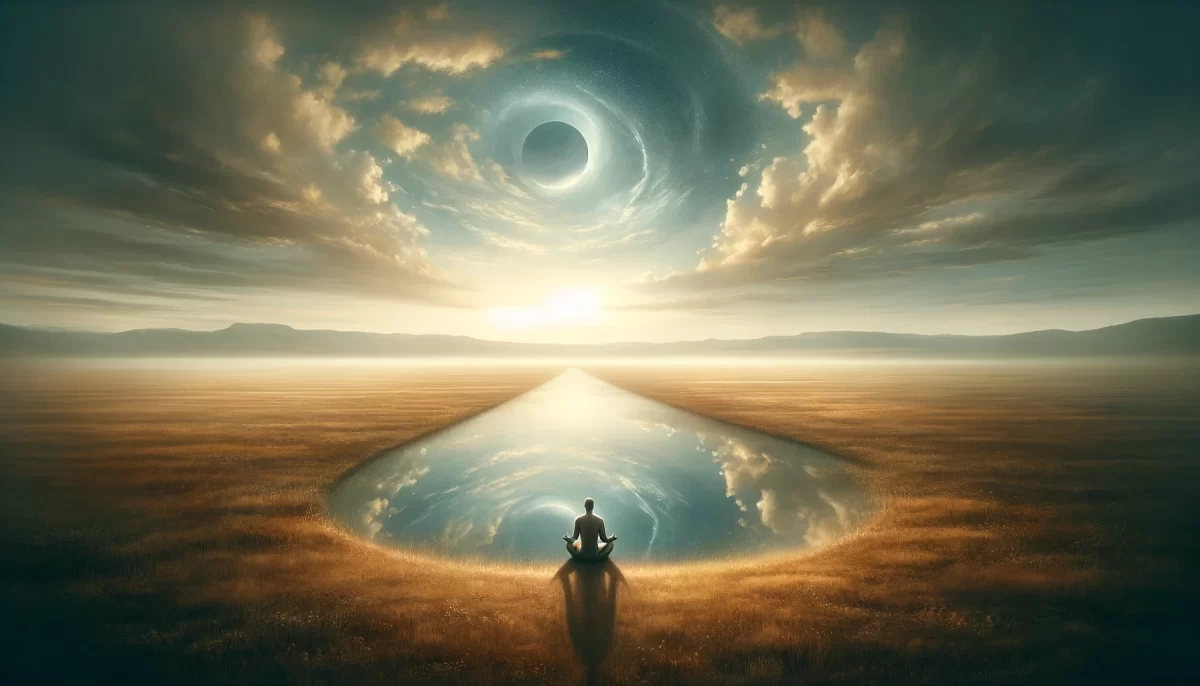
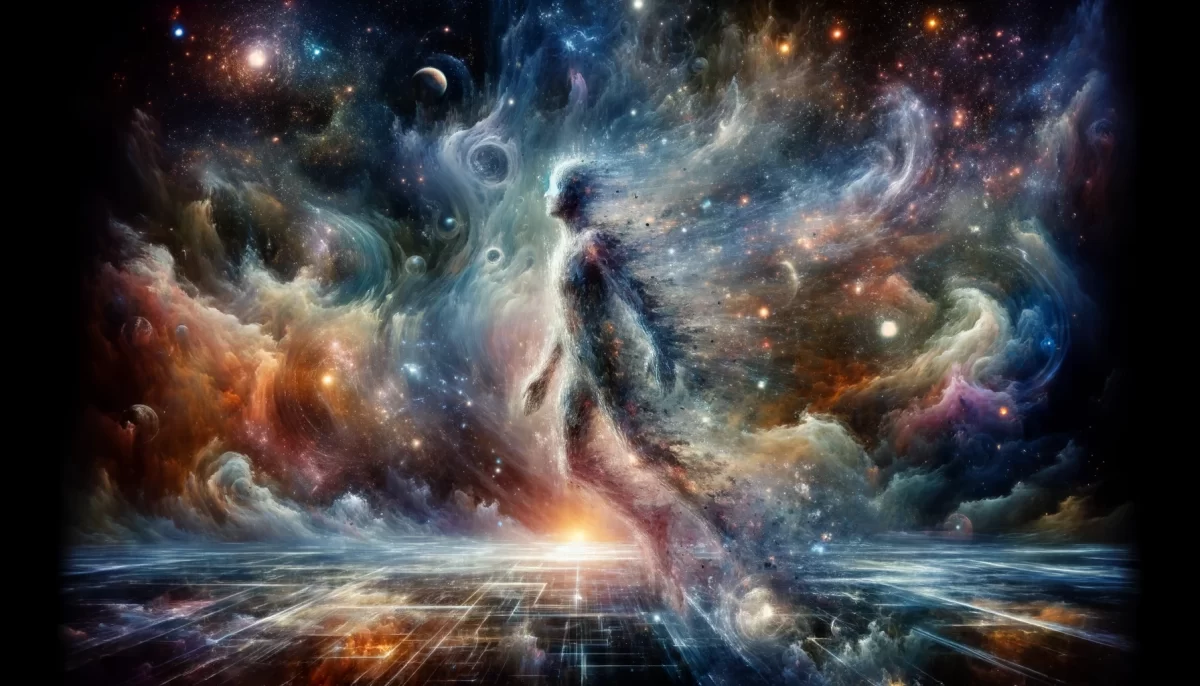
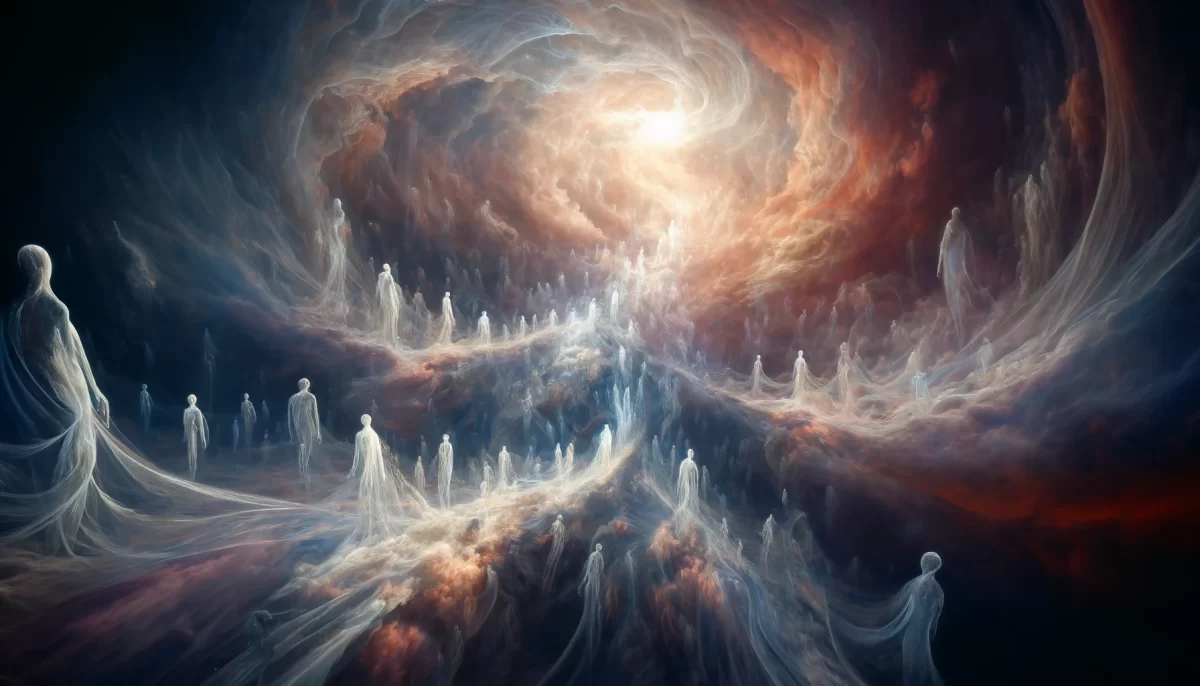
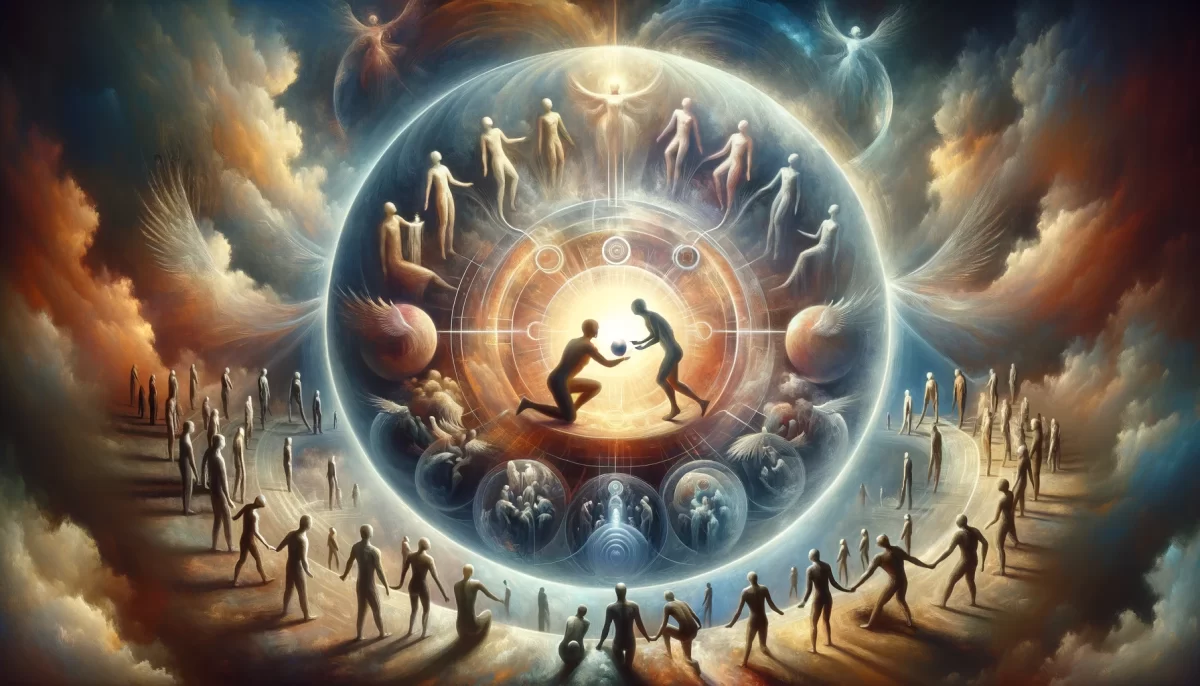

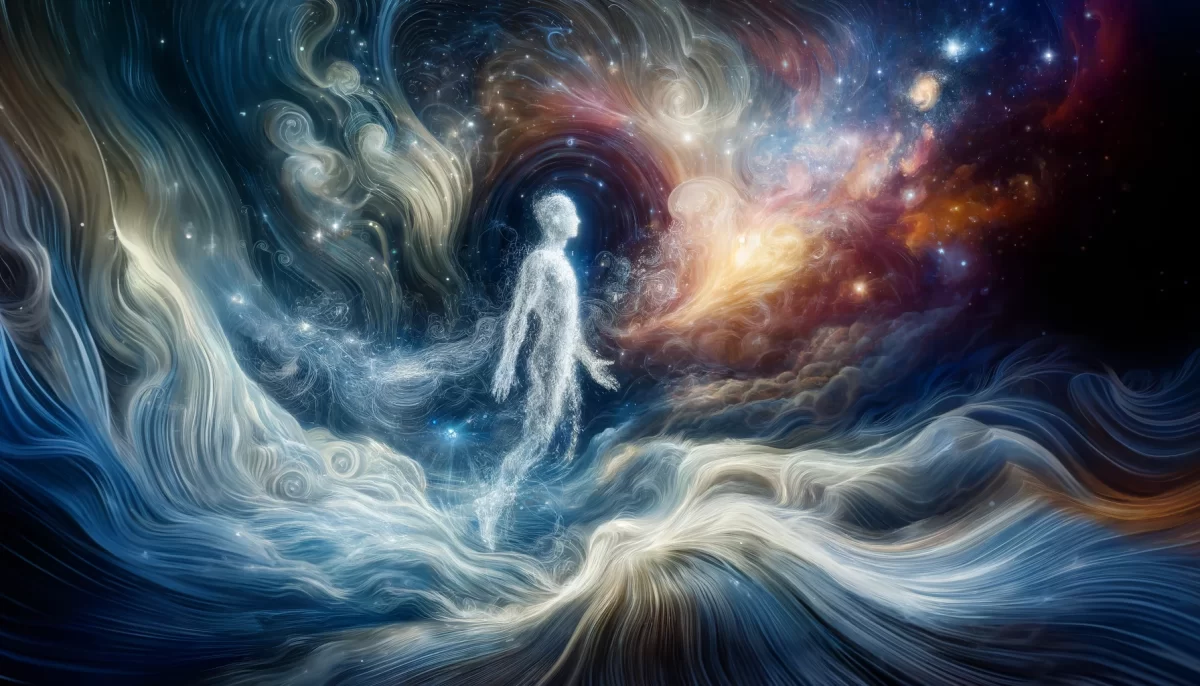
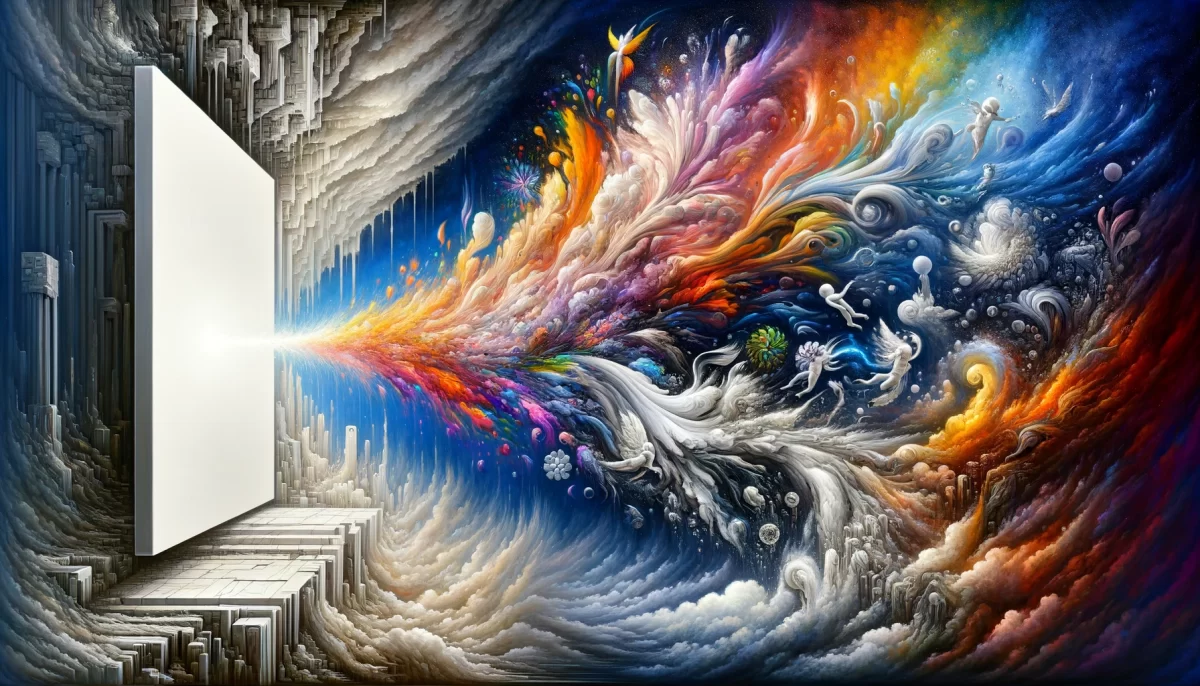
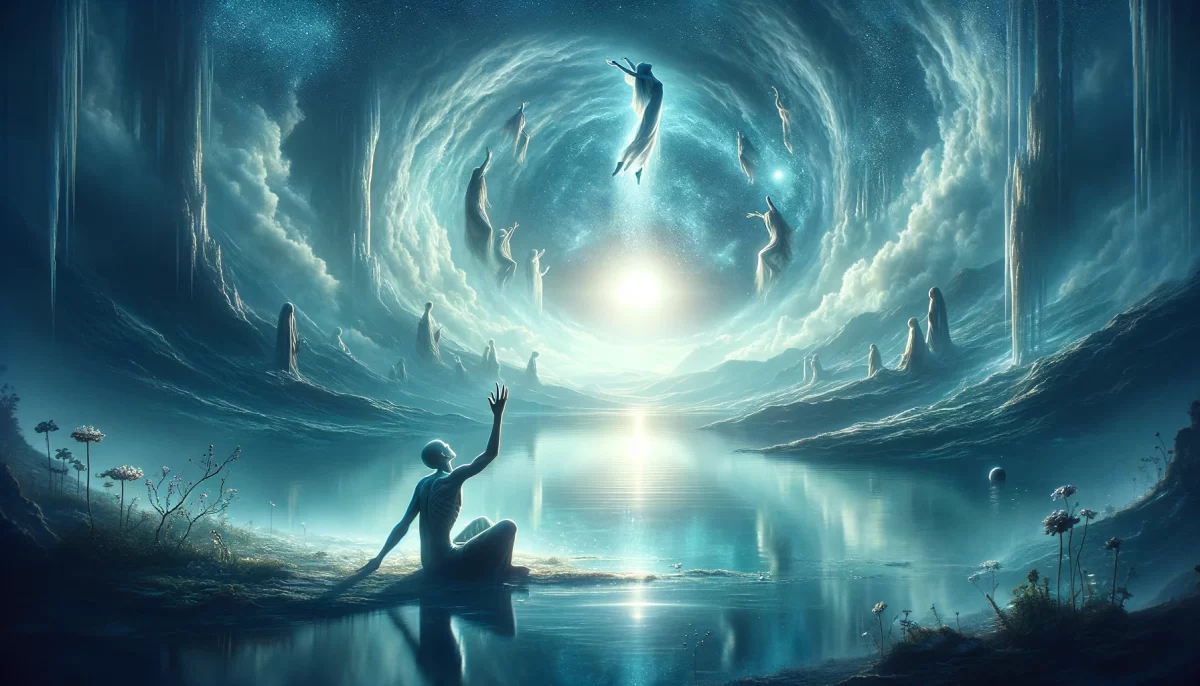

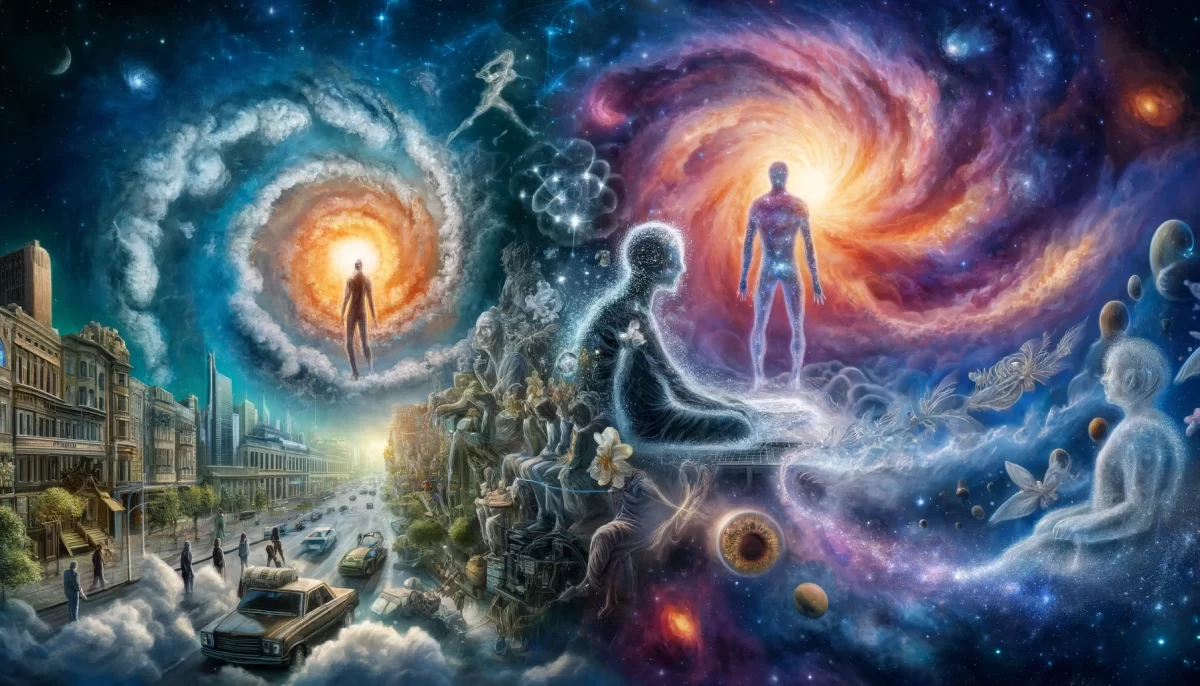

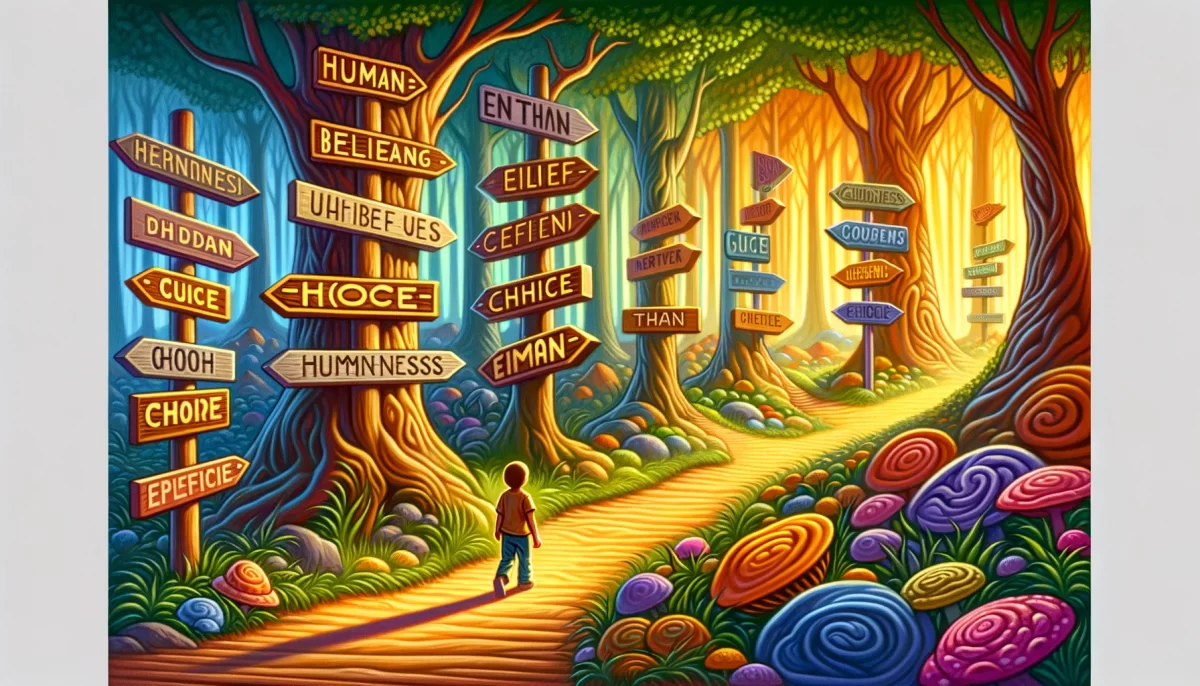
I just watched my nephew prepare Soup Joumou for New Years. He is Haitian and he had his little son taste at the end of his video and I surprised him with the last line of this dialogue – Jean prepare Le soup, petit Jaan se gout.
Sweet! Bet you didn’t think that one little dialogue of ALM French would ever come in handy!
Programmed? Nah, Ma, nous regardons la television.
Who would have thought this amazing little remembrance would point to our true consciousness?
It is “dans une huere”
not un. Heure is feminine
Merci. Thank you and noted!
What a waste of time French class was.
Non. It gave us this pointless little earworm that will remain in our brains until the day we die.
Omg! This is the only story that I remember from 5th grade French class! It’s remarkable that I’m not the only one. I think my class was texted on memorizing this and that’s why it is ingrained in my brain. That was over 40 years ago. I googled – Michel, Anne, vous travaillez…and came across this. Thank you for the memories!
If we could only find the cartoon cards that went with the dialogue! Anyone???
I remember this dialogue from my junior high school French class in the mid-70s. In fact, it’s the *only* dialogue that I remember. The phrase “Allez, ne discute pas tous le temps.” is still something I occasionally say when the mood strikes.
I also found this from the phrase about Michel and Anne. I had first tried the classic “Ou est la bibliotheque”, but google assumes I want a map of library locations.
I just heard this recited on an old episode of West Wing.
I say one thing in French and I say it just about every day when I’m too busy,
“il y a beaucoup a faire”
There, I said it again.
For some reason I tried googling it just now and arrived here.
Now I remember French 1 from 48 years ago.
Thanks um …
Mercy buckets.
Je vous en Prius. 😉 Vroom, vroom.
Fantastic!!
I just searched “Michel, Anne, vous travaillez”, and this came up!
Remember it from Year 8 French in 1979!!
Oui!
OMG i am not crazy (that depends on who you ask). I was watching White Lotus Season 2 Episode 4 and one of the actors quoted the first 2 lines. I freaked and scared my husband. I stopped the playback and told him those were the only 2 lines I remember from my middle school French class 47 years ago. What are the chances? I Googled the phrase and found this article and realized I am not alone. There are others who had “Er No” seared into their brains at just a young age. Thank you for validating my existence!
There is a deeper meaning to all of this if only you wish to meditate upon it.
I had that French book in 1973. In Jr. high School.
Heard Michele/Anne dialogue on The White Lotus season 2 , episode 5
This is nuts… my brother and I have had a running joke about this dialog for 40 some years. Like you, it drilled into our brains for some reason and we can still recite every word. (our teacher was a knockout so maybe that helped)…. anyway, on a whim I googled a few words and voila, your post popped up…. thank you!
Thanks for your comment. I believe that “Ecoutez et Repetez” may have some small part in the unfolding of our universe.
Lucky you. My French teacher was about 60 and during her prep period someone passed her classroom and from the hall overheard her singing Rod Stewart ‘s “Do You Think I’m Sexy?” She may have been sexy for a 60yo but what guy in 7th grade thinks an old lady is sexy. That is the only other thing I remember from my French class.
LOL! If sixty one year old me were to meet my sixty year old French Teacher, I’d probably think, as heard in Rod’s other song, “Je t’aime.” Time travel is clearly involved in this remembrance.
“C’est la specialité de la maison …du ragout.”
Remember that one too?
Decades later, my sister and I dared each other throughout Paris to say at a restaurant upon food delivery, “J’ai faim, mais je ne vais pas manger ça!!” Neither of us had the guts.
(Apologies for what I presume is butchered spelling.)
Thanks for the chuckles!
Thank you! I had forgotten that one!
que ce c’est? de la viande ou du soupe? 😀
Our Dutch French teacher drilled this into us in Melbourne early 80s. Nothing like Australians trying to speak French with a Dutch accent
Does anyone recall that other gem, “c’est qui’il est laid, c’est bebe!”? Always have to surpress a Tourette’s like urge to say it when introduced to a new baby.
I did German too..
Ist die Post offen, Otto?
Nein, sie ist am Sonntag geschlossen….
Google translation:
“It’s who he’s ugly it’s baby.”
N’es-tu pas un vilain bébé
Aren’t you an ugly baby!
Je l’aime! I love it!
Thank you!
I remember the book, the picture opposite the dialogue, the entire dialogue in French and English (I know enough French after 6 years of school French)sert (dessert is masculine), and the 7th grade teacher who taught me this, my 1st foreign language—Mme. Carnes!
BTW,
Encore cinq minutes (minutes is plural ’cause it’s cinq/5)
le dessert (dessert is masculine)
Isn’t it amazing what we remember and what we forget?
This randomly pops in my head from 1970
I learned this in the 8th grade in 1972. I remember that Rosie O’Donnell recited this on her talk show stating that she as well learned it in Junior High. I can still recite it by heart, yet I don’t remember the preamble for the Constitution without looking it up first!
And from lesson 1…
Ou est Philippe?
A la piscine
Avec que?
Avec Anne.
If there are accent marks in this, I don’t remember them and I can’t make them.
The accompanying text for this blog posting is fabulous because it is exactly what is going on in my head. I can do the two dialogues from French level 1, and that’s it. My French level one was 1970. Somehow I managed to get a grade of 80% on the New York State French Regents exam after level 3 in 1972 . But it’s all gone now. A shout out is due to Mrs Seldon and Miss Lowe.
I will close with one more dialogue from this, this one in English:. A L M; French, level one, text copyright 1969 by Harcourt Brace and World, New York.
I have a lovely piece of news for you, Ed – you CAN make accents on your computer in Windows 10!
Follow this link: https://www.aflahaye.nl/en/frequently-asked-questions/how-to-type-french-accents/
Perhaps this could be the beginning of something beautiful…A new dalliance with le français!! – It is waiting!
Congrats on that Regents exam, that’s actually pretty darn excellent!
Next phrase:
Claudine est la?
No, il est au zoo.
This bit of dialog “Michel, Anne vous travailler etc.”just showed up in season two, episode four of White Lotus. Leading me to Google it and get many, many results including this one
Yes! I just saw that last night! What are the odds? Must be some fifty-sixty-ish writer on the staff!
OMG-I just watched White Lotus and couldn’t believe it-which lead to this search! We all only remember the first few lines and have repeated them for decades!
Wow, I had French 1 in 1983 or 1984. I only remembered the 1st two lines and like everyone else just heard them on White Lotus. How long did they use this book? Awesome to have the full page and the book title. Thanks!
You’re welcome! Funny thing is, I don’t even remember how to say “you’re welcome” in french. Merci beaucoup maybe? No. That’s thanks. Over to google . . . . “je t’en prie.”
OMG, you’re all my people! I think about Michel and Anne all the time.
How about, :Il y a quelqu’un? C’est le facteur!
I taught French from 1976-2015 and every Level I class I had memorized
“Michel! Anne! Vous travaillez?”… Great for teaching verb conjugations.
So glad so many people remember it! What fun! Here’s to all those teachers who burned it into your memories!
Madame Jonas
Thank you Madame Jonas, and Madame Reardon at JFK Middle school in Randolph Massachusetts, and all the other French teachers, and ALM, all of whom created a bonding moment of commonality within MILLIONS of aging Americans. (I think it was god, actually.)
There are a few possible reasons why people may remember the dialogue from a French lesson they memorized fifty years ago more easily than other things:
Repetition: The dialogue was likely repeated multiple times during the French lesson, which could have reinforced the information in people’s memories.
Emotion: The act of learning something new can elicit emotions such as excitement, frustration, or anxiety, which can create a stronger memory of the experience.
Personal relevance: The dialogue may have been particularly relevant or interesting to the person, which could have increased their motivation to remember it.
Lack of use: If people haven’t had occasion to use their French skills in the years since learning the dialogue, they may not have had the opportunity to reinforce other aspects of the language in their memory.
Primacy effect: The dialogue may have been one of the first things that people learned in their French lesson, which could have made it more memorable due to the primacy effect, which is the tendency for people to remember information that they encounter first more easily than information encountered later.
Or, it was planted there for a reason that is soon to be revealed to us.